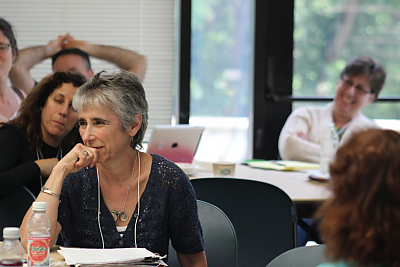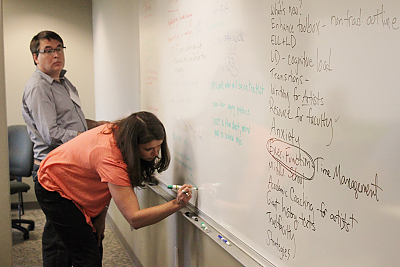LCIRT has partnered with hundreds of schools, colleges, and organizations of all types around the globe to provide relevant and practical professional development opportunities that foster better classroom or workplace experiences for neurodivergent individuals.
- We bring professional development to your institution, on the topics you want, when you want it, and deliver it in the way you want it delivered.
- We make sure we understand your needs and expectations before designing instruction that’s right for your group.
Our workshop formats are flexible, interactive, and hands-on. We build in time for reflection and ways to apply the concepts to the work you do with students.
What can LCIRT do for my organization?
- Develop a customized training program for faculty and staff
- Evaluate the success of current programs and support improvements
- Customize a curriculum especially for individual schools
- Provide specialized materials and strategies to promote literacy and math skills
- Guide development of new academic programs
- Corporate training on understanding neurodiversity in the workplace. Download our corporate training sevices brochure.
LCIRT works individually with each client to determine their workshop learning objectives in order to create a fully customized workshop that is tailored to each organization’s goals. Workshops take place on-site at a location of the client’s choosing (onsite or remote), and most run either for a half day (3 hours of training) or full day (5 hours of training plus a 1-hour lunch break). Given every workshop is tailored to each organization, we cannot provide a fully exhaustive list of every type of training we can design.
Our most common general topics as they relate to training requests include neurodiversity/neurodivergence (including overviews of ADHD, autism, and LDs), executive function, universal design for learning, and disability resource office accommodation decision making. To inspire ideas, we have included a sample list of some recent workshops below, however a team member is more than happy to meet with you to explore other similar topics that can help your organization support our neurodiverse world!

